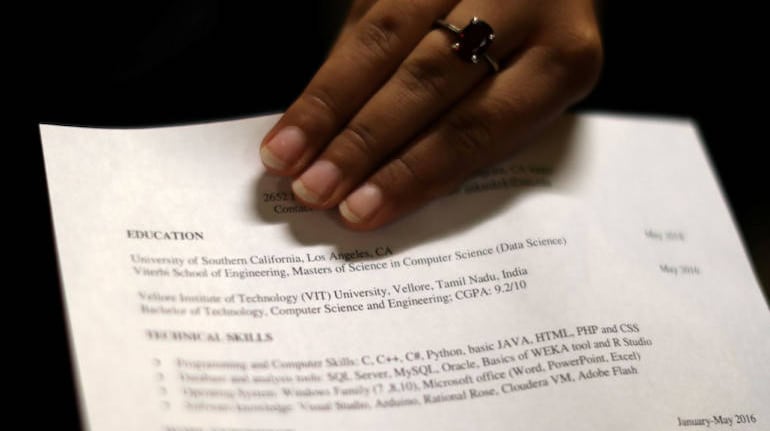



Recently moonlighting — the practice of taking on other jobs outside of working hours while one is already in a full-time job — has come under fire. Large Information Technology (IT) firms are staking their positions for or against the practice. But regardless of whether one is pro moonlighting or opposed to it, the raging debate over the issue signals a clash between traditional notions of employment, and an emerging world of work where flexibility reigns supreme.
Ultimately enterprises, workers, and government will need to make clear choices about the kind of labour market, and employment relationships they want to foster.
Enterprises, big and small, have long lobbied for deregulation and freedom from cumbersome compliances, and labour laws. The new labour codes oblige by doing away with government enforcement of provisions, and instead allowing companies to self-report compliance. This, on top of the fact that micro/small and unregistered firms constitute the vast majority of enterprises, and are not subject to many of these regulations anyway.
WATCH: Are You Juggling Between 2 Jobs? You May Be Moonlighting
The rise in gig work is breaking-up full-time jobs into tasks. Labour platforms, in many ways, epitomise this form of flexibility — they have hundreds of thousands of self-employed ‘partners’ as opposed to employees. Several such platforms exercise significant control over their partners — from the uniforms they wear, to the prices they can charge, to quality of products they use or services they provide — yet, the platforms are not considered to be employers, and are under no obligation to provide worker entitlements.
An already flexible labour market is becoming more so. Stubbornly-high informal employment increased further between 2017-18, and 2020-21, going from 68 percent to 71 percent. Over half of those working are self-employed, outside the purview of labour regulations, and social security. The percentage of those who are self-employed increased from 52 percent in 2017-18 to just under 56 percent in 2020-21, while the proportion of those in regular wage/salaried work decreased from almost 23 percent in 2017-18 to 21 percent in 2020-21.
As forces like technology and pandemics upend traditional employment models and alter how we work — remote work, contract work, home-based work, and gig work are all on the rise offering different degrees of coveted flexibility for employers and workers. Moonlighting is but one example of how workers, especially young workers, are using this flexibility to avail opportunities through online gig work platforms for a range of reasons — upgrading their skills, to earning supplementary income, to expanding networks, and exercising their agency to choose the gigs they want to work on.
But flexibility also comes with insecurity in work arrangements. Just as labour market flexibility, deregulation, often comes at the expense of labour protections and entitlements for workers, workers exercising their flexibility through moonlighting, for instance, raises concerns about conflicts of interest, intellectual property, data privacy, and just plain loyalty.
The matter goes far beyond large IT companies such as Wipro and Infosys constraining their employees through more stringent contracts. This issue transcends the IT sector, and is relevant to how we govern our economy, and labour markets across sectors.
Like much else in the world, there are no simple rights and wrongs. If corporations want more flexibility, including with their commitments to workers, then workers too should have the right to exercise flexibility, including moonlighting. But if enterprises are willing to play their part in cultivating quality employment complete with entitlements, safety, and opportunities for upgrading and career mobility, then workers must also commit to more. Here the State must hold both accountable.
WATCH: Quiet Quitting After Great Resignation: How To Deal With Post Pandemic Burnout
Ultimately, this debate over moonlighting in the IT sector centres on a small proportion of more privileged workers. For the vast majority of workers in India — in various forms of precarious work arrangements in the informal and formal sectors — moonlighting is a necessity rather than a choice. But the real question is whether we want to foster a world where deep insecurity, and mistrust masquerade as flexibility, or do we want to foster a world of work with secure jobs, fair wages, good working conditions, and opportunities for economic mobility?
This is a matter of building a social compact between employers and workers; inculcating a culture of mutual responsibility; and instituting a regulatory environment — not more or less regulation, but clear, effective regulation — that holds both employers and workers accountable.
Sabina Dewan is President and Executive Director, JustJobs Network, and Senior Visiting Fellow, Centre for Policy Research. Views are personal, and do not represent the stand of this publication.
Discover the latest Business News, Sensex, and Nifty updates. Obtain Personal Finance insights, tax queries, and expert opinions on Moneycontrol or download the Moneycontrol App to stay updated!
Find the best of Al News in one place, specially curated for you every weekend.
Stay on top of the latest tech trends and biggest startup news.